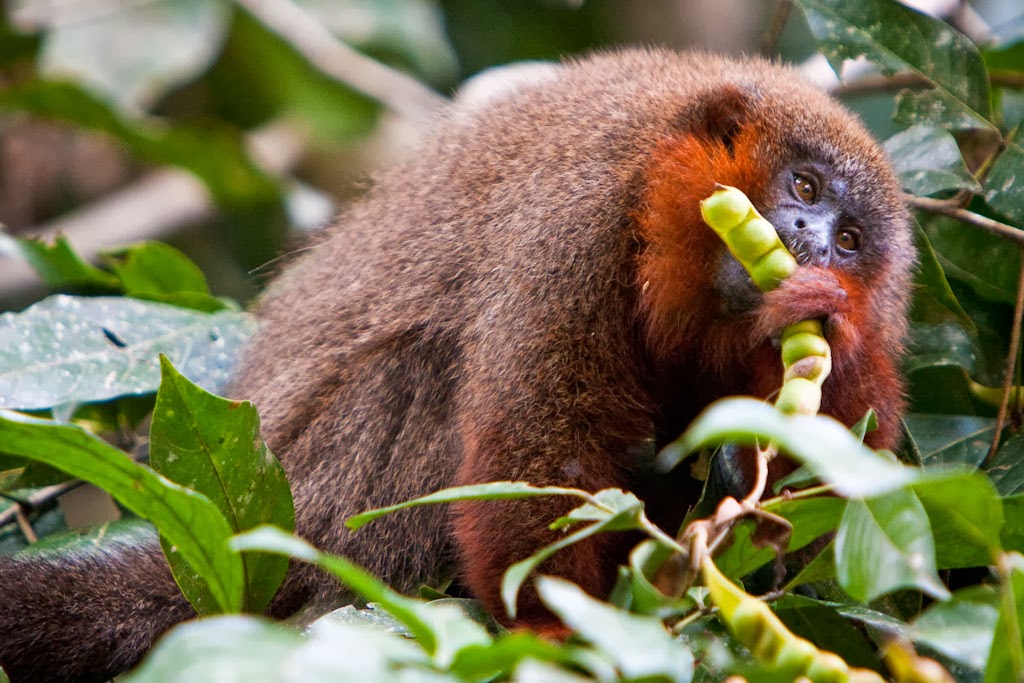Caquetá Tití Monkey Plecturocebus caquetensis
Critically endangered
Colombia
Caquetá Titi Monkeys are monogamous and make a distinctive purrs like kittens. Discovered only in 2010 they’re now critically endangered from massive #deforestation in #Colombia for #palmoil and #timber #Boycottpalmoil #Boycott4Wildlife
Tweet
Caquetá Titi Monkeys have a distinctive song and they purr like a kitten they form monogamous partnerships. Discovered relatively recently in 2010, these beautiful and fascinating monkeys are now critically endangered due to the massive deforestation that is occurring in Colombia for palm oil and other commodities. Caquetá Titi Monkeys have been observed in disturbed humid tropical lowland forest fragments on terra firme (Defler et al. 2010, García et al. 2010) often surrounded by pasturelands and in low swampy land (Moynihan 1976).
It’s suspected that there are fewer than 100 individuals Caquetá Titi Monkeys left in the wild and fewer than 50 mature individuals. The habitat of the Caquetá Titi Monkeys is in an advanced state of fragmentation caused by extensive ranching and illegal crop cultivation.
IUCN Red List
This species is listed as Critically Endangered because of a population decline, suspected to be more than 80% over 24 years (three generations), due to a reduction of the area of occupation caused by extensive ranching and illegal crop cultivation, and the causes of the reduction have certainly not stopped.

Support the conservation of this species
This animal has no protections in place. Read about other forgotten species here. Create art to support this forgotten animal or raise awareness about them by sharing this post and using the #Boycottpalmoil #Boycott4Wildlife hashtags on social media. Also you can boycott palm oil in the supermarket.
Further Information

Defler, T.R., García-Gutiérrez, J., Stevenson, P.R., Guzmàn-Caro, D. & Palacios, E. 2020. Plecturocebus caquetensis. The IUCN Red List of Threatened Species 2020: e.T14699281A17974505. https://dx.doi.org/10.2305/IUCN.UK.2020-3.RLTS.T14699281A17974505.en. Downloaded on 15 February 2021.

How can I help the #Boycott4Wildlife?
Contribute in five ways
1. Join the #Boycott4Wildlife on social media and subscribe to stay in the loop: Share posts from this website to your own network on Twitter, Mastadon, Instagram, Facebook and Youtube using the hashtags #Boycottpalmoil #Boycott4Wildlife.
2. Contribute stories: Academics, conservationists, scientists, indigenous rights advocates and animal rights advocates working to expose the corruption of the palm oil industry or to save animals can contribute stories to the website.
3. Supermarket sleuthing: Next time you’re in the supermarket, take photos of products containing palm oil. Share these to social media along with the hashtags to call out the greenwashing and ecocide of the brands who use palm oil. You can also take photos of palm oil free products and congratulate brands when they go palm oil free.
4. Take to the streets: Get in touch with Palm Oil Detectives to find out more.
5. Donate: Make a one-off or monthly donation to Palm Oil Detectives as a way of saying thank you and to help pay for ongoing running costs of the website and social media campaigns. Donate here









One thought on “Caquetá Tití Monkey Plecturocebus caquetensis”